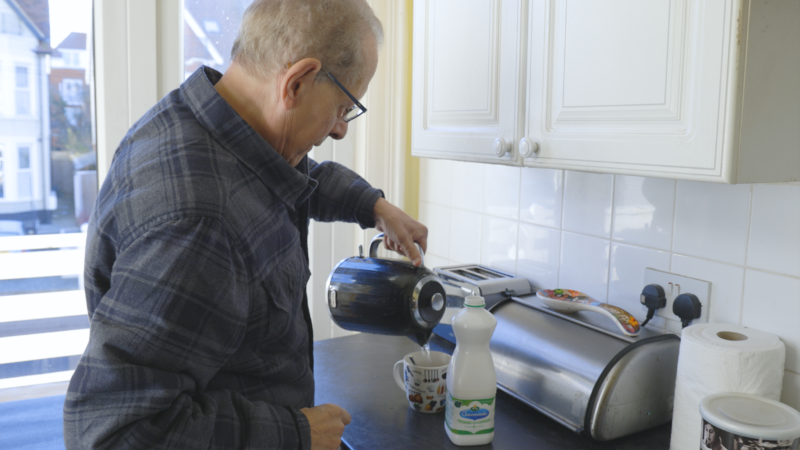
In Essex, the story of Jason, a former journalist and author in his 70s, epitomises the transformative impact of integrated health and social care. Despite a history of health issues, Jason lived an active lifestyle until an unexpected medical crisis changed everything. “On 1 August last year, my world collapsed,” says Jason, who was rushed to hospital with a pulmonary embolism.
For people like Jason, the Mid and South Essex Urgent Community Response Team (UCRT) becomes a lifeline. Comprising an array of healthcare professionals, from nurses and paramedics to occupational therapists, UCRT provides tailored, urgent care within a two-hour window. “I was actually referred into the service, the urgent response service. I was just amazed,” recounts Jason, grateful for the ‘exclusive’ attention he received.
Not only did the UCRT help manage Jason’s medical condition, but their holistic approach also covered his psychological well-being and social needs. “They obviously did feel my pain,” says Jason. For him, the team was more than just healthcare providers; they were his support network, enabling him to regain control and maintain his independence.
The presence of the UCRT plays a broader role in the community as well, alleviating pressures on emergency services and hospital A&E departments. It empowers patients to receive urgent care at home, thus promoting independence and reducing the need for hospitalisation.
“For people like Jason, keeping them closer to home and promoting independence is not just an operational efficiency; it’s a humane approach that makes a world of difference,” says a healthcare worker from UCRT.
Jason’s story transcript
In mid and south Essex we’re exploring the benefits of joined up working in health and care through the eyes of local people. Jason, a former journalist and author, is in his seventies and lives in Essex. Up until 15 months ago, despite past health issues, Jason was able to manage his health well. He kept active and had even considered joining a local wild swimming club. After an unexpected spell of ill health, Jason suddenly became unwell.
“On August the first last year, my world collapsed, basically because I was rushed into hospital with a pulmonary embolism. So I’m quite independent, very independent. I could never imagine my life not looking after myself and being in my own flat and doing all the things with my grandchildren that I like doing.”
So Urgent Community Response Teams is a collective of community teams that respond to urgent or crisis needs for patients. So our response times are within two hours. So we will go out, assess the patient in an urgent health or social care crisis, do an assessment, or carry out an assessment. We could treat, we could do bloods and put a plan in place for those patients. We have in the teams a collective of nurses, paramedics, physios, occupational therapists, as well as healthcare support workers. They can go out and see patients that have got maybe mobility issues. They can get urgent equipment in like commodes, hospital beds if required.
We also, at the moment, are having high referral numbers for falls and we’ve got a great bit of equipment called a Raizer chair so we can pick patients up that have got non-injury falls. We also take a lot of referrals for GPs or nurse specialists at the hospital for urgent blood testing to try and keep patients at home as much as possible. We also work collaboratively with partners, so like social care to assist in terms of if it’s a social crisis, we can arrange a package of care. For example, in worst case scenario, we could assist or social care could also help us in terms of assisting for somebody to go into respite, for example, just for those few days until they’re back on their feet or their baseline.
“I was actually referred into the service, the urgent response service. I was just amazed. I mean they, I’ve often said that some people feel your pain and they obviously did. They were actually quite, ever so good, on that way. Most nurses are, but these were absolutely exceptional, and I felt almost quite like I had exclusive nurses, which I did, to myself. So to have this sort of service available to me if needed, means a hell of a lot.”
Delivering better integrated care in the community has meant that staff can: provide more personalised care. Tailoring support to meet Jason’s needs. Prevent ill-health to help people like Jason take control and retain his independence and achieve better outcomes by providing urgent care in the community.
You’re avoiding an attendance to the hospital A&E, you’re avoiding, you know, hospital admission. You’re also helping with the system pressures, so reducing the need for an ambulance to attend so they can free up the time to go and attend perhaps somebody with more life threatening emergency. And you’re keeping people at home, closer to home, and promoting independence.
Mid and South Essex Integrated Care System. Together we can make the moments that matter.